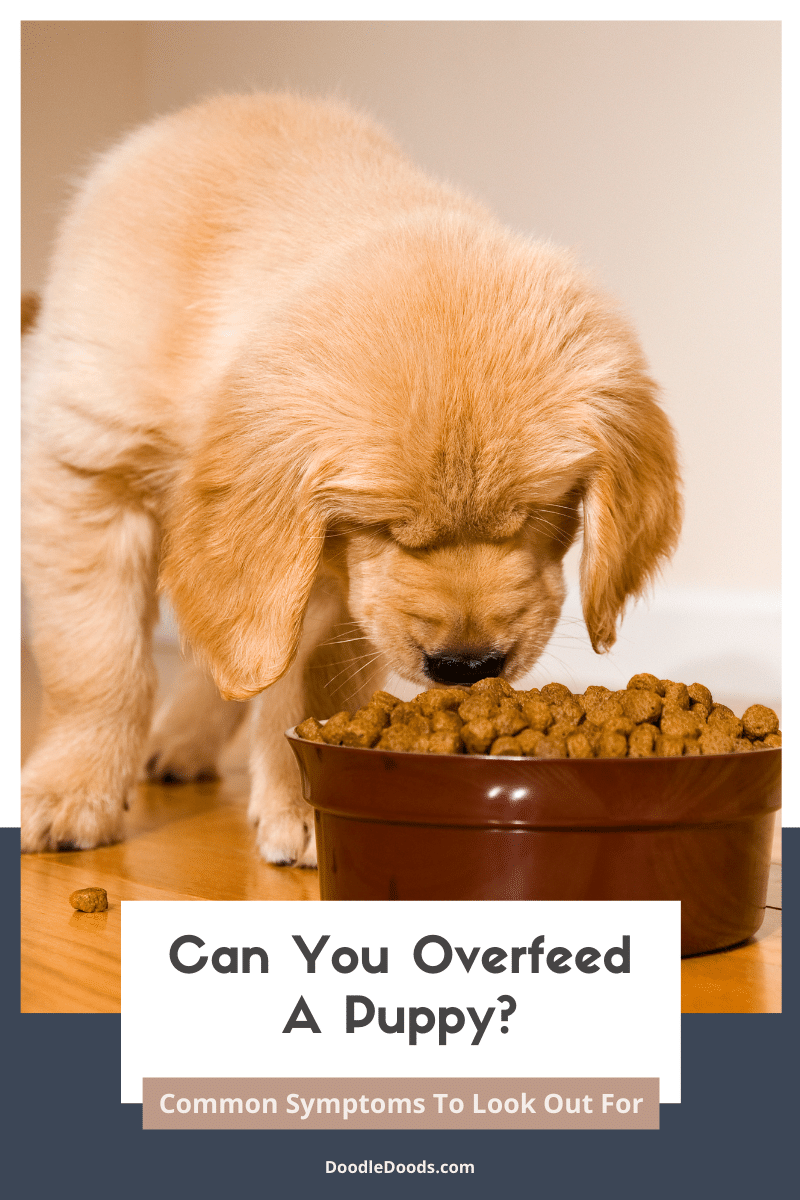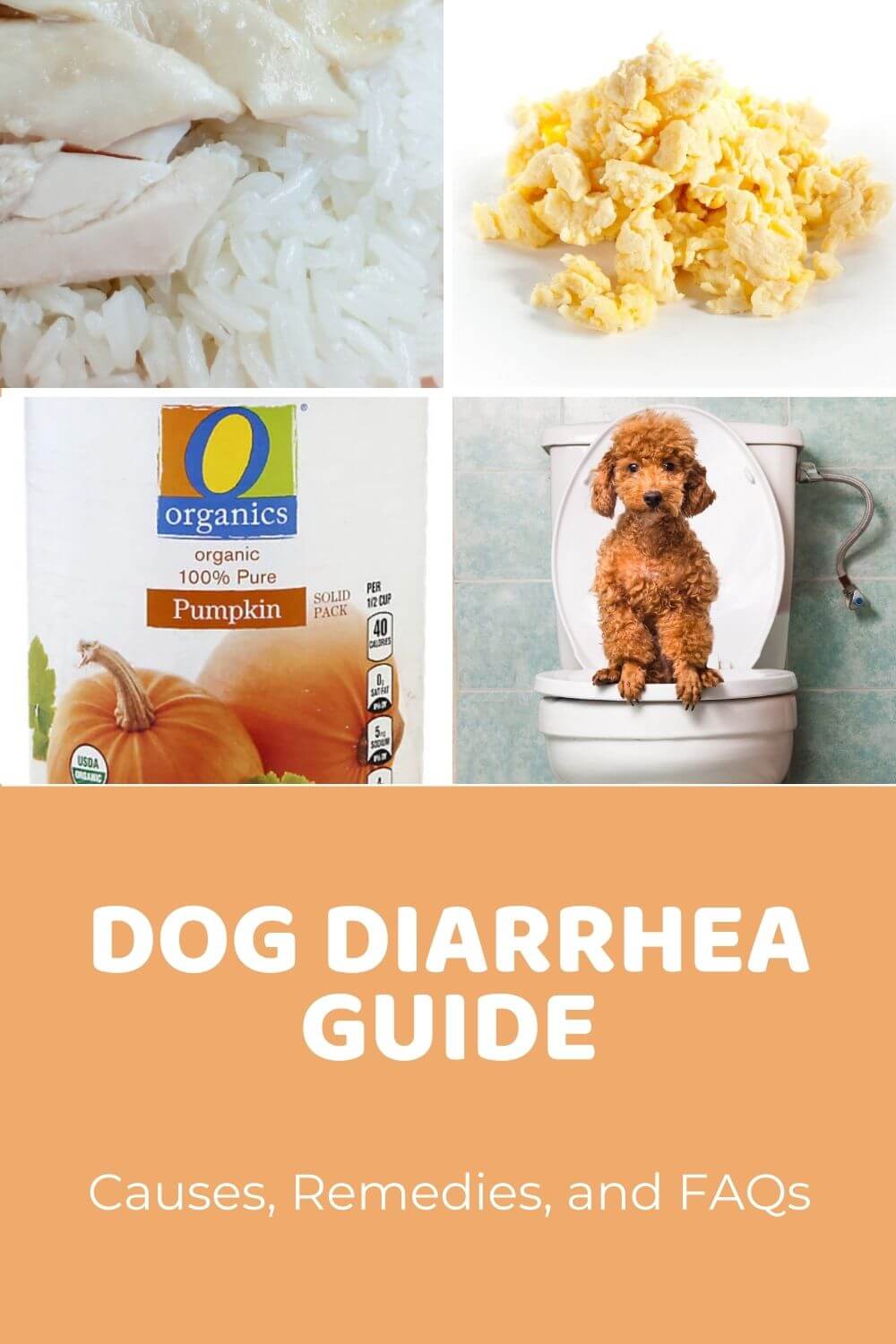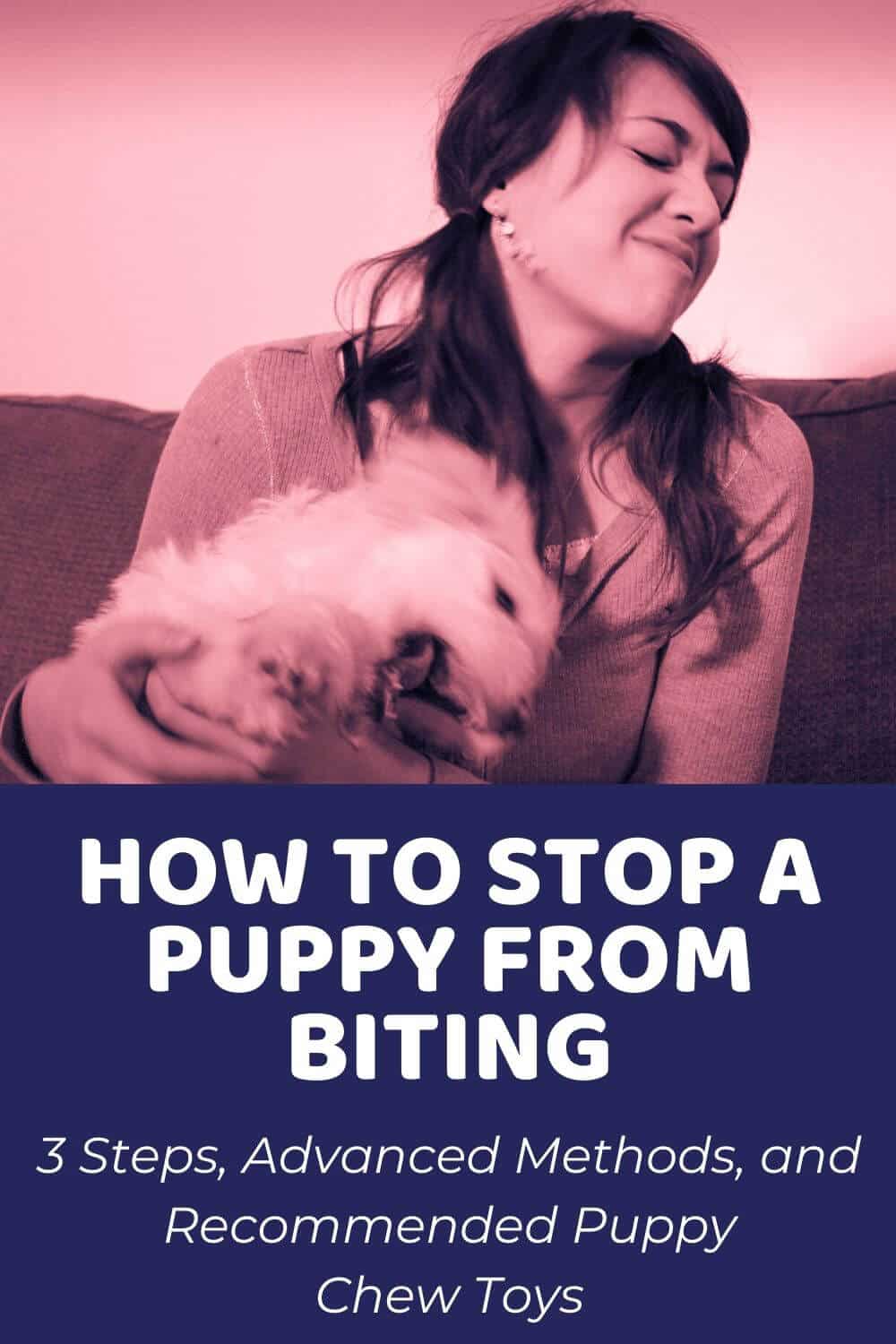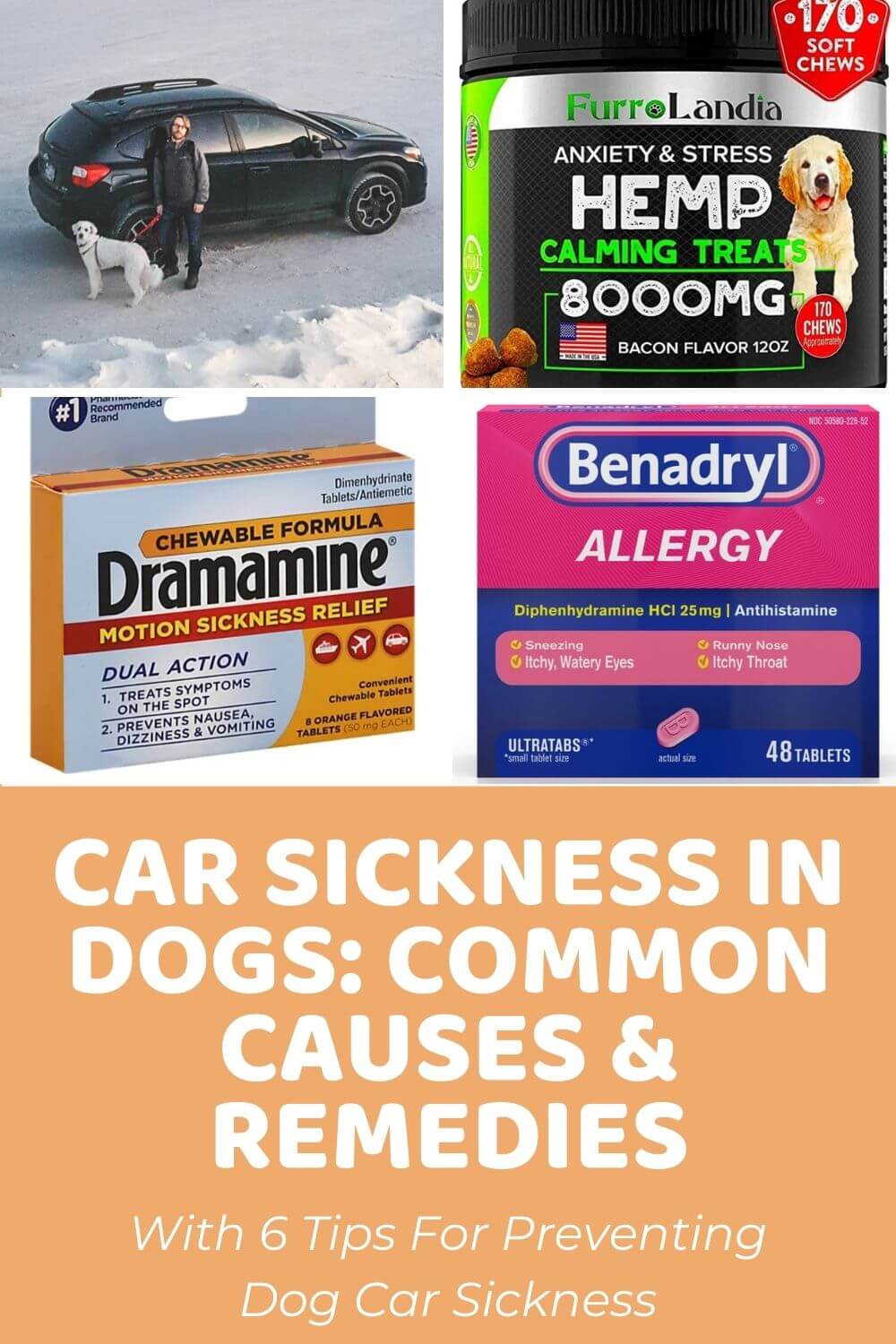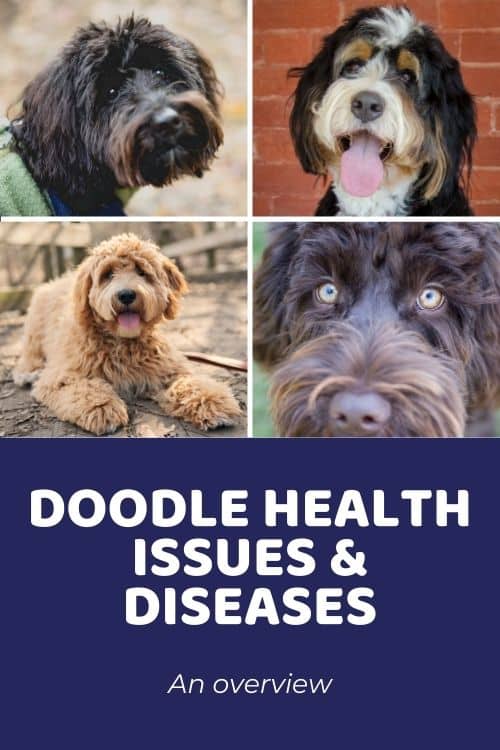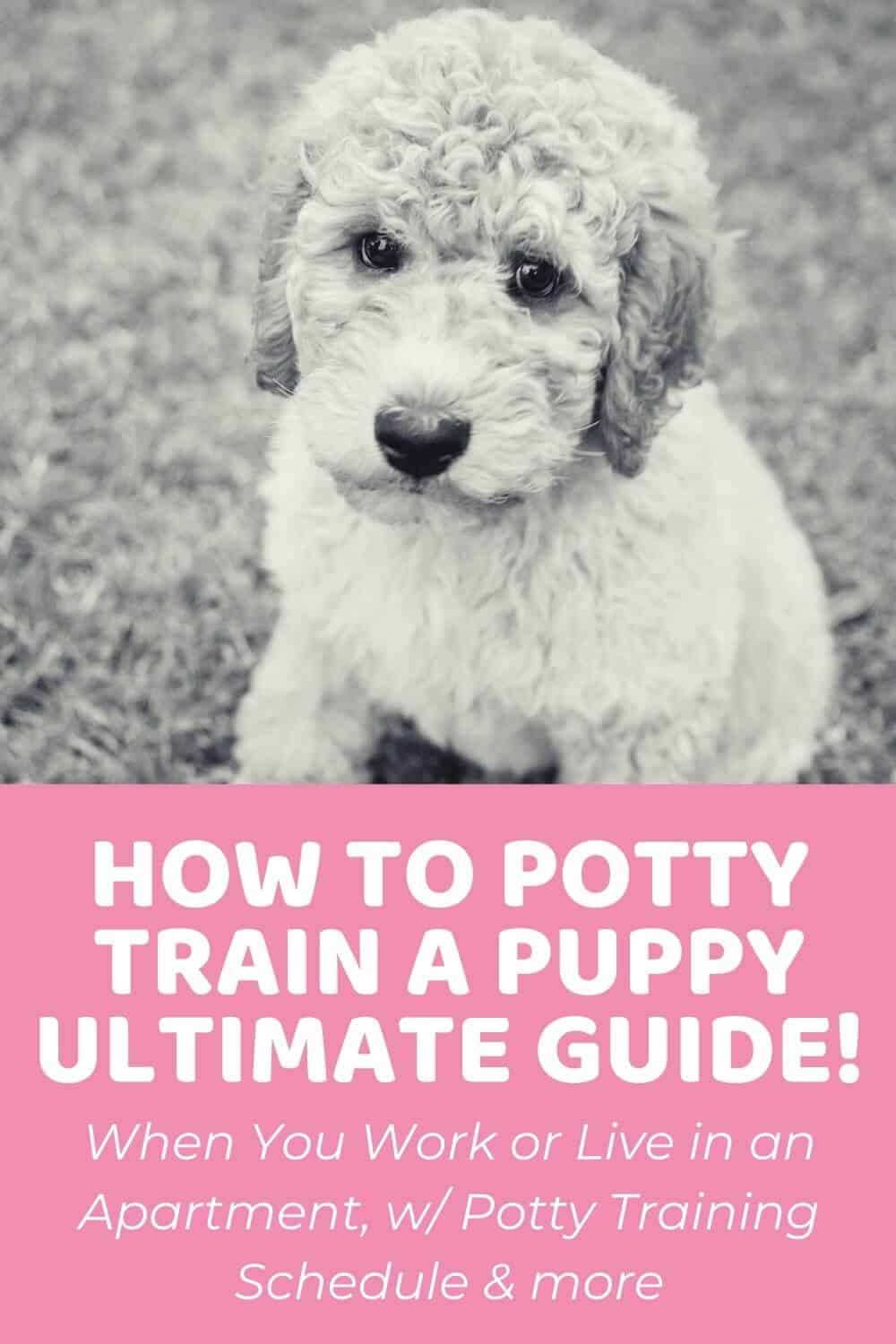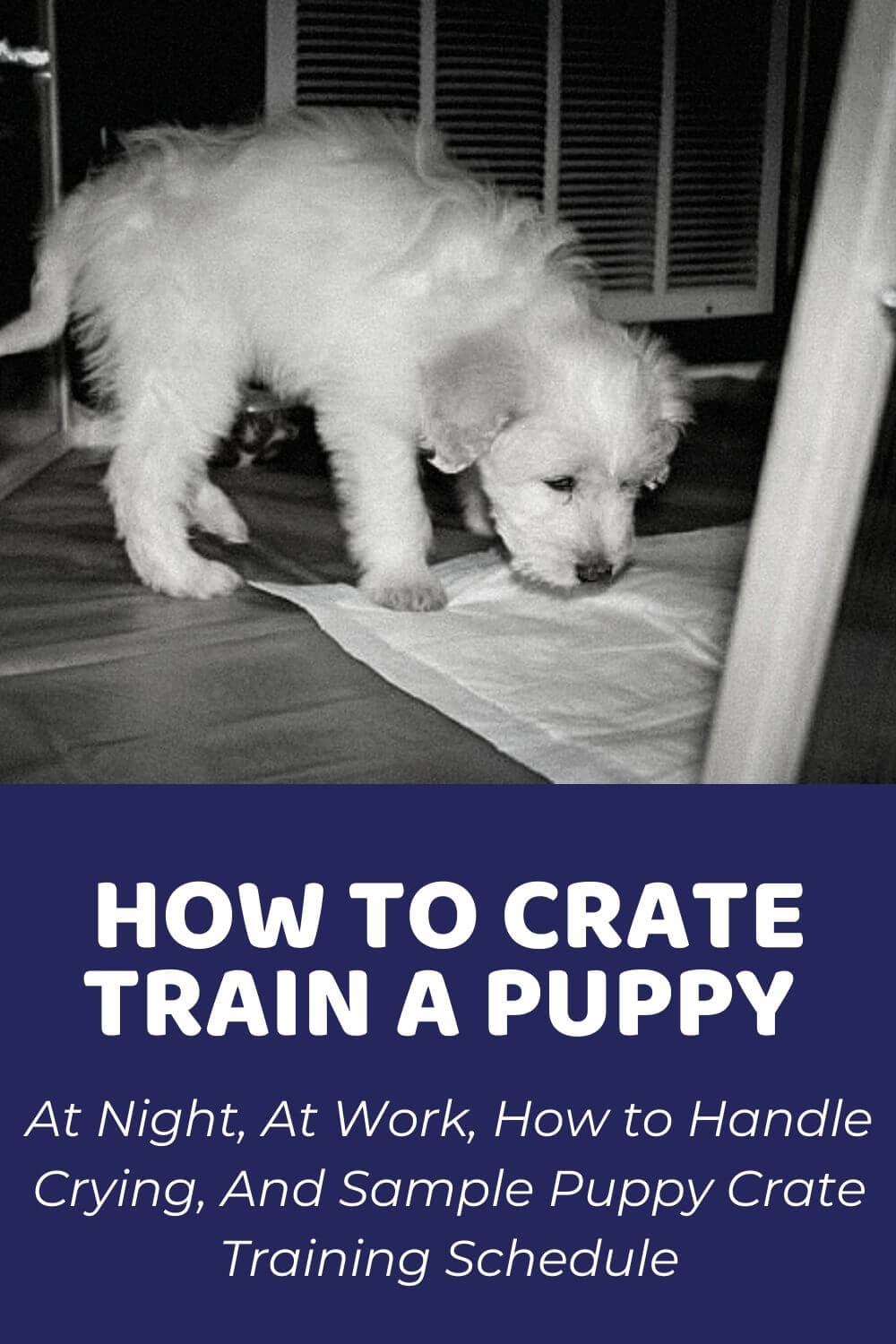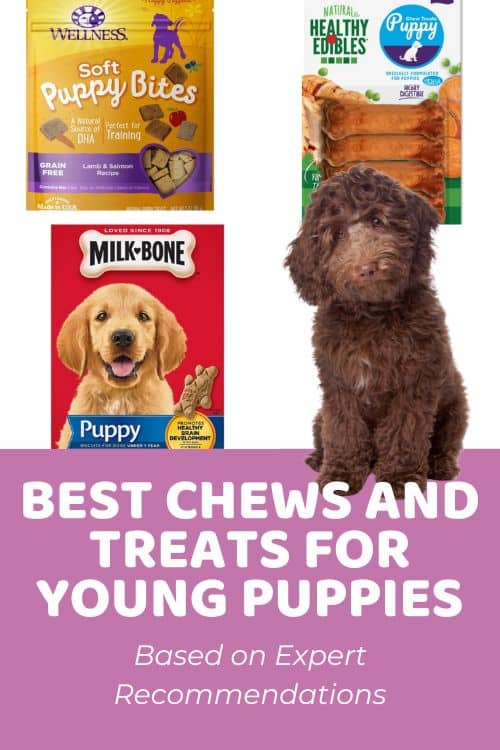Bringing home your new puppy is the most wonderful time! Your new best pal arrives home and you’re all set to raise them into a well-behaved, healthy, and happy adult. Of course, one key area of getting a pup is that you have to feed them, bathe them, train them, and do everything else that comes with the territory. In this guide, we’re going to answer the question “can you overfeed a puppy?” and discuss some common signs and symptoms of overfeeding your puppy.
Table of Contents
- Can You Overfeed A Puppy: Intro
- How Much Food Does A Puppy Need?
- 5 Symptoms Of Overfeeding Your Puppy
- Why Is My Puppy’s Poop So Runny?
- How To Treat Loose Stools In Dogs?
- Can You Overfeed A Puppy: FAQs
Can You Overfeed A Puppy: Intro
There’s no arguing that puppies are cute, regardless of their shape and size. To be fair, a few extra pounds can definitely make those silly little beings look even cuter. However, excess weight often goes hand in hand with some serious health risks for your pup.
That should already answer your question “can a puppy eat too much?” – yes, absolutely! And as you’re the one taking care of your puppy, it’s your responsibility to ensure that your pup gets just the right amount of food daily. Not too much and not too little, as both overfeeding and underfeeding are by no means beneficial for our canine pals.
Let’s say, you notice your puppy has loose stool. Overfeeding can actually be the cause of that! But even though diarrhea is one of the milder health risks associated with overfeeding, it’s certainly something that should be dealt with. Not to mention, overfeeding your puppy can lead to a whole range of other health issues, many of them negatively impacting your puppy throughout their whole lifetime.
How Much Food Does A Puppy Need?
Now that we answered your question “can you overfeed a puppy?“, the next logical step would be to figure out how much should you feed your puppy, then?
There’s no one-size-fits all approach to this question, as all puppies are different in terms of their size, age, breed, and activity levels. Nonetheless, you should feed your puppy the right amount of food to help them grow into a strong and healthy adult, but also to prevent any potential health concerns. That’s why it’s so important to find the right diet for your puppy and carefully consider their unique needs.
If you’ve adopted your puppy from a breeder or even a shelter, the earliest you’ll be able to bring them home is around the 8 week mark. By that time, puppies should already be fully-weaned from their mother’s milk and already introduced to scheduled mealtimes of dry kibble and/or wet food.
Like with us humans, puppies should be fed based on their daily caloric requirements. High-quality puppy foods have the caloric (and other nutrient) profiles stated on the packaging, which will help you figure out how much you should feed your puppy that specific formula. Other than that, here’s a helpful puppy daily feeding chart that helps you find out how many calories your puppy should eat daily:
We also recommend you try our dog feeding calculator that’ll help you calculate exactly how many calories you should feed your puppy considering the calorie density of the formula. By the way, don’t forget to take into account the treats you’re feeding your puppy, as these calories can quickly add up!
Can You Overfeed A Puppy: Other Considerations To Keep In Mind
Another thing to note is that puppies should only be fed specially formulated puppy food. You should only gradually switch your pup to an adult formula once they’ve finished growing, or per your vet’s instructions.
Keep in mind that puppies are technically still babies – they’re growing and developing, and therefore they have different nutrient requirements that adult dogs. That’s why it’s crucial that you feed your pup the right type of food to prevent any potential health issues.
In terms of frequency, puppies that are 8 to 12 weeks old should eat around 3-4 meals a day. When puppies are 4 to 5 months old, 3 meals per day should be the perfect frequency. And after your pup is about 6 to 7 months old, you can adjust their mealtimes to 2 per day. Here’s a helpful chart for your reference:
| Age | Frequency |
| 8-12 weeks | 3-4 times a day |
| 4-5 months | 3 times a day |
| 6-8 months | 2 times a day |
| 9-11 months | 2 times a day |
| Adult | 2 times a day |
Now you might wonder – can you overfeed a puppy if you’re only giving them three or even two meals a day? Absolutely you can! At the end of the day, what matters is calories in and calories out. Of course, your puppy’s metabolic rate and activity levels also play a role here, but you do want to stick to the close range of the usual guidelines for puppies’ calorie intake.
5 Symptoms Of Overfeeding Your Puppy
When it comes to an overfed puppy, symptoms could be hard to notice at times. Some signs are rather easy to notice, whereas others could very well surprise you. In the following sections we’ll take a look at some of the most common symptoms of overfeeding your puppy so that you can make appropriate changes to your pup’s diet immediately.
Your Puppy Is Getting Overweight And Lethargic
Needless to say, one of the first symptoms of overfeeding your puppy manifest on their waistline. Indeed, if your puppy is packing on the pounds and seems to get a bit chubby a bit too fast, it’s likely due to excessive food intake. As a consequence, your puppy might also become lethargic, as they’re always so full and they don’t have the same stamina as a puppy that’s at a healthy weight.
That being said, a good daily exercise routine is also crucial for any pup, regardless of their age. Just make sure you don’t over exercise your puppy, as their stamina isn’t the same as adult dogs’.
Abnormal Bowel Movements Including Soft Stools
Tummy issues are a common sign in puppies and dogs that you might be overfeeding them. Whether it’s runny poop and diarrhea, bloating, or even constipation, excess food intake often leads to digestive problems.
For instance, if you notice your puppy has loose stool, overfeeding might be the culprit. Essentially, if you overfeed your puppy on a daily basis, their digestive system will become overwhelmed, which will often result in runny poops. Likewise, if you notice that your puppy is constantly bloated and gassy, this could also indicate that you’re feeding them too much.
If your puppy’s diarrhea is caused by overeating, it’s usually more noticeable after their mealtimes and in the evenings. Interestingly enough, morning poops usually look fine in that case.
Another thing to remember with diarrhea in puppies is that this indicates that your pup isn’t getting all the nutrients they need from their diet. This could potentially lead to malnourishment, even resulting in issues with their growth and development.
There Are Tear Stains On Your Puppy
Tear stains aren’t a direct symptom of overfeeding your puppy, but they can indicate that there’s an issue stemming from improper diet. Whether it’s allergies or food sensitivities, build-up of toxins, or simply eating an unbalanced diet, tear stains are a common symptom to watch out for. This is especially noticeable in pups that have light-colored fur. However, tear stains can develop on any dog, you just won’t notice them as much on dark fur.
By the way, overfeeding your puppy can lead to increased stress on their immune system, which makes them more susceptible to inflammation, infections, and allergies. Both of which are common causes of tear stains in dogs and puppies.
Health Problems Like Joint Pain, Itchiness, And Chronic Ear Issues
When talking about more serious overfed puppy symptoms, we cannot forget the increased risk of certain health conditions. In case you’ve been consistently overfeeding your puppy and they’ve been gaining weight as a result, it’s time to put an end to it immediately, as this can lead to joint problems, including joint pain, and even arthritis down the line. It could also contribute to abnormal bone and joint formation during puppyhood, which will greatly affect your puppy’s upcoming years by your side. And no, not for the best.
Furthermore, food allergies and an unbalanced diet can also contribute to itchiness and chronic ear infections. It could also weaken your puppy’s immune system and burden their body, making them more susceptible to infections and other health issues.
Your Puppy Is Ingesting Feces
Ingesting feces, also known as coprophagia, is not a direct symptom of overfeeding your puppy. However, it can be a sign that something is off in their diet or health. As we know, overfeeding your puppy can often lead to diarrhea, which means that the food and nutrients they consume aren’t properly absorbed by the body. As a result, your puppy’s feces contain those undigested nutrients that’ll attract them to eat the poop.
Why Is My Puppy’s Poop So Runny?
When dealing with your puppy’s loose stool, overfeeding could definitely be a possible cause. In addition to that, sudden changes in diet, feeding your pup low-quality dog food and/or allergy triggering food ingredients, or feeding them inappropriate items like table scraps can all mess with your puppy’s digestive system and lead to runny poop.
However, there are many other possible causes to consider, especially if you know for sure that their diet isn’t to blame. For example, stress from changes in their usual daily routine, environment, or even separation anxiety can all cause diarrhea in dogs and puppies.
In addition to that, intestinal parasites can cause diarrhea in puppies. That’s why regular deworming is essential for dogs of all ages to prevent this outcome. Similarly, bacterial and viral infections also often manifest in diarrhea. Infections like parvovirus and salmonella can be especially dangerous for our pups, so proper hygiene is crucial to prevent those. And if at any point you suspect a parasite infestation or an infection, it’s time to contact your vet immediately.
Moreover, certain medications can also be to blame for runny stools. So, if your puppy has recently been on a round of antibiotics, balancing it out with your vet-approved probiotics could do the trick.
At the end of the day, runny stools happen from time to time. However, if this becomes a persistent issue, you should most definitely consult with your vet who will be able to diagnose and treat your pup accordingly. Remember to monitor your puppy’s behavior, energy levels, and overall health at all times, as these can provide valuable information for your veterinarian.
How To Treat Loose Stools In Dogs?
If you’ve figured out that your puppy has loose stools because of overfeeding, the first thing you must do is to reduce the amount of food you’re giving them. Above we have some helpful guidelines to figure out your puppy’s exact calorie requirements and daily feeding frequency. However, we do recommend you also discuss this with your vet, as they’ll be able to advise you best according to your puppy’s unique needs.
You should also discuss with your vet about your puppy’s diet. Sometimes the usual puppy food formulas won’t cut it and you might have to switch to a specialized diet. In different cases, low-phosphorus dog food, low-carb dog food, or low residue dog food could be more suitable for your puppy. Nonetheless, make sure you consult this with your vet first and gradually switch your puppy’s food to prevent any further digestive issues!
Quick Home Remedies For One-Off Diarrhea
If your pup is experiencing a bout of diarrhea, but they seem fine overall, a short period of fasting (12-24 hours) could be helpful to give their digestive tract some rest. You should also keep a close eye on your puppy’s behavior, energy levels, and bowel movements to prevent any further harm to your dog’s health. If you notice any worrying signs, it’s best to be safe rather than sorry – head to your vet’s office immediately.
If your vet has instructed you to put your dog on a short fast, make sure that they have access to clean drinking water at all times. They need that hydration! Once your puppy is off the fast, you can feed them a bland diet that consists of boiled white rice and boiled boneless, skinless chicken breast. Do not add any seasonings or salt to your dog’s food, however! And once your pup is feeling better, you can gradually introduce them to their usual kibble or wet food again.
Prevention Is Key
All in all, you want to prevent loose stools and diarrhea as much as possible. Make sure you feed your puppy a high-quality puppy food formula that doesn’t trigger their allergies or sensitivities. Don’t make any sudden changes to their diet and don’t feed them any table scraps or let them munch on garbage or other unsuitable items.
And remember, if your puppy’s diarrhea is a daily concern, this is your cue to contact your vet as soon as possible.
Can You Overfeed A Puppy: FAQs
There are many ways to know whether or not you’re overfeeding your puppy. For instance, if your puppy has been gaining weight and becoming a bit chunkier, excessive food intake is likely the cause. Similarly, if you notice your puppy has loose stool, overfeeding could be to blame. There are many different overfed puppy symptoms, but these are usually the most common and easily noticeable.
If you consistently keep overfeeding your puppy, they’ll likely start carrying excess weight and even become obese. This in turn puts them at serious risk of joint problems like hip and elbow dysplasia, arthritis, and issues with growth and physical development. In addition to that, obesity can lead to diabetes, heart problems, and many other serious health conditions that can negatively affect your puppy’s quality of life and lifespan.
This depends on why your puppy is experiencing diarrhea, as different causes can lie behind this. If your puppy’s loose stools are caused by overfeeding, simply feed them less according to your vet’s guidelines. You might also have to switch their formula if it contains any triggering ingredients. For instance, some puppies quickly develop allergies and sensitivities to certain proteins like chicken. Most of the time, a helpful home remedy that delivers quick results is to put your puppy on a bland food diet that consists of boiled white rice and boneless, skinless boiled chicken breast.
Can You Overfeed A Puppy: Final Thoughts
Although overfeeding your pup might not seem like a big deal, it can actually have pretty severe consequences both in short and long term. We hope this article manages to answer your question “can you overfeed a puppy?” and figure out the best possible diet for your little pup. After all, you want your little pal to be by your side for many years to come, and feeding them the right amount of high-quality food plays a key role in that!
Learn How to Care for Your Doodle Puppy!
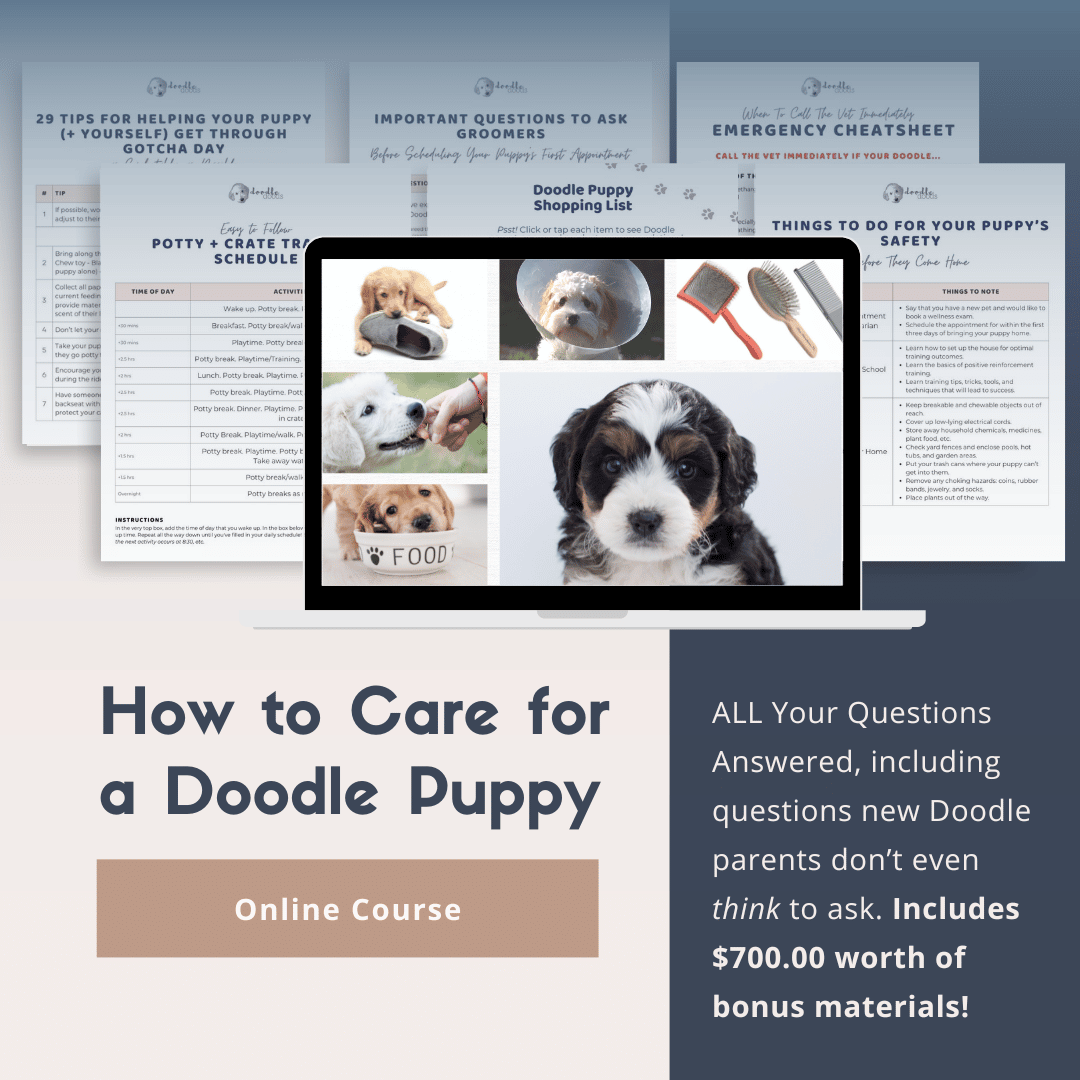
Perfect for first-time Doodle parents, get ALL your questions answered, including questions new Doodle parents don’t even think to ask.
Plus, get $700 worth of Bonus Materials for FREE, including:- Doodle Parenthood Community and Support Group ($190 value)
- Doodle Puppy Growth Tracker ($20 value)
- EMERGENCY Cheatsheet: When To Call The Vet Immediately ($50 value)
- HELP! Button ($145 value)
- And SO MUCH MORE!

